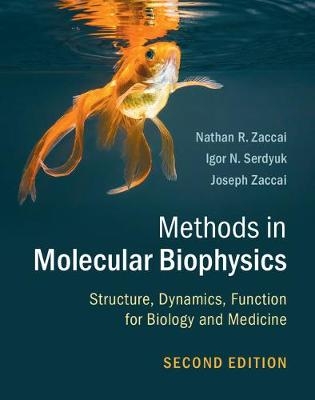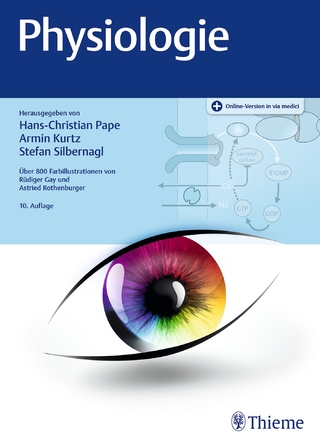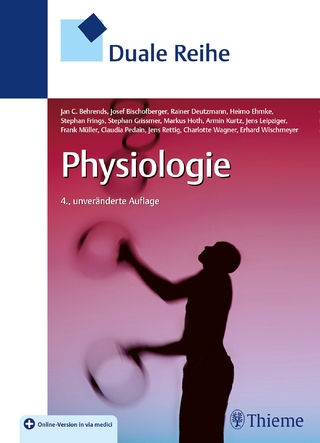
Methods in Molecular Biophysics
Cambridge University Press (Verlag)
978-1-107-05637-4 (ISBN)
Current techniques for studying biological macromolecules and their interactions are based on the application of physical methods, ranging from classical thermodynamics to more recently developed techniques for the detection and manipulation of single molecules. Reflecting the advances made in biophysics research over the past decade, and now including a new section on medical imaging, this new edition describes the physical methods used in modern biology. All key techniques are covered, including mass spectrometry, hydrodynamics, microscopy and imaging, diffraction and spectroscopy, electron microscopy, molecular dynamics simulations and nuclear magnetic resonance. Each method is explained in detail using examples of real-world applications. Short asides are provided throughout to ensure that explanations are accessible to life scientists, physicists and those with medical backgrounds. The book remains an unparalleled and comprehensive resource for graduate students of biophysics and medical physics in science and medical schools, as well as for research scientists looking for an introduction to techniques from across this interdisciplinary field.
Nathan R. Zaccai is a Research Associate at the Cambridge Institute for Medical Research, University of Cambridge. His current research focuses on the molecular and thermodynamic basis of the transport and presentation at cell surfaces of proteins involved in pathogen evasion and host immunity. Joseph Zaccai is Directeur de Recherche Emeritus at the Centre Nationale de la Recherche Scientifique (CNRS), Paris and Visiting Scientist at the Institut Laue-Langevin, France and Institut de Biologie Structurale, Grenoble. His current research interests include the exploration of the role of dynamics and physical chemical limits for life. He has many years of experience in teaching biophysics to biologists, medical students, and physicists. Igor N. Serdyuk (1939–2012) was Professor of Molecular Biology and Head of the Laboratory of Nucleoprotein Physics at the Institute of Protein Research, Russian Academy of Sciences, Moscow.
Preface to the first edition; Preface to the second edition; Introduction; Part I. Biological Macromolecules and Physical Tools: 1. Macromolecules in their environment; 2. Macromolecules as physical particles; 3. Understanding macromolecular structures; Part II. Mass Spectrometry: 4. Mass and charge; 5. Structure function studies; Part III. Thermodynamics: 6. Thermodynamic stability and interactions; 7. Differential scanning calorimetry; 8. Isothermal titration calorimetry; 9. Surface plasmon resonance and interferometry-based biosensors; Part IV. Hydrodynamics: 10. Biological macromolecules as hydrodynamic particles; 11. Analytical ultracentrifugation; 12. Fluorescence depolarization; 13. Dynamic light scattering and fluorescence correlation spectroscopy; Part V. Optical Spectroscopy: 14. Visible and IR absorption spectroscopy; 15. Two-dimensional IR spectroscopy; 16. Raman scattering spectroscopy; 17. Optical activity and circular dichroïsm; Part VI. Optical Microscopy: 18. Light microscopy; 19. Single molecule manipulation and atomic force microscopy; 20. Fluorescence microscopy; 21. Single-molecule detection; 22. Single-molecule manipulation; Part VII. X-Ray and Neutron Diffraction: 23. The macromolecule as a radiation scattering particle; 24. Small-angle scattering and reflectometry; 25. X-ray and neutron macromolecular crystallography; Part VIII. Electron Diffraction: 26. Electron microscopy; 27. Three-dimensional reconstruction from two-dimensional images; Part IX. Molecular Dynamics: 28. Energy and time calculations; 29. Neutron spectroscopy; Part X. Nuclear Magnetic Resonance: 30. Distances and angles from frequencies; 31. Experimental techniques; 32. Structure and dynamics studies; Part XI. Medical Imaging: 33. Radiology and positron emission tomography; 34. Ultrasound imaging; 35. Magnetic resonance imaging; References; Index of eminent scientists; Subject index.
| Erscheinungsdatum | 19.05.2017 |
|---|---|
| Zusatzinfo | 797 Halftones, black and white; 28 Line drawings, black and white |
| Verlagsort | Cambridge |
| Sprache | englisch |
| Maße | 224 x 283 mm |
| Gewicht | 2190 g |
| Themenwelt | Medizin / Pharmazie ► Medizinische Fachgebiete ► Radiologie / Bildgebende Verfahren |
| Studium ► 1. Studienabschnitt (Vorklinik) ► Physiologie | |
| Naturwissenschaften ► Biologie ► Genetik / Molekularbiologie | |
| Naturwissenschaften ► Physik / Astronomie ► Angewandte Physik | |
| ISBN-10 | 1-107-05637-3 / 1107056373 |
| ISBN-13 | 978-1-107-05637-4 / 9781107056374 |
| Zustand | Neuware |
| Haben Sie eine Frage zum Produkt? |
aus dem Bereich


